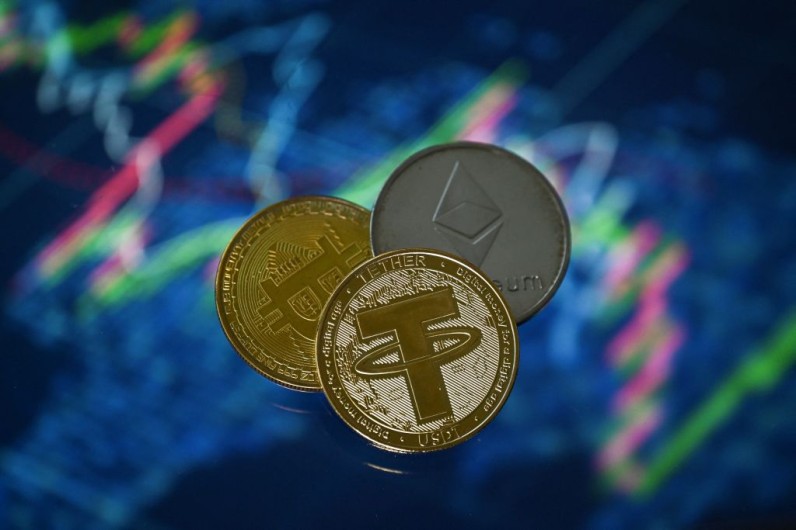
Amid the challenges faced by Russian commodities firms in conducting financial transactions with their Chinese counterparts, they have turned to a new solution for finalizing deals - stablecoins.
According to undisclosed sources, two prominent metals producers have started utilizing Tether Holdings Ltd.'s stablecoin and other cryptocurrencies to facilitate cross-border transactions with their Chinese clients and suppliers.
Russian Firms Turn to Cryptocurrency for Cross-Border Transactions
These companies, which are not subject to sanctions, have chosen to remain anonymous as this information has not been made public. Occasionally, the settlements are processed via Hong Kong, according Bloomberg.
The adoption of blockchain technology by major Russian companies, two years following the commencement of the February 2022 invasion of Ukraine, highlights the enduring impact of international sanctions on the economy.
Companies in Russia involved in the trade of various commodities, such as metals like nickel and steel, as well as timber, have encountered difficulties in receiving payments for their products and acquiring necessary equipment and raw materials ever since the conflict started.
It remains a fact that even in cases where they have not been officially sanctioned, certain entities have faced numerous penalties from the US, the European Union, and their allies.
Financial transactions have become more challenging in China this year, despite the country's decision not to participate in international sanctions.
China has emerged as a major export market for various Russian commodities and a supplier of goods and equipment. One of the main reasons for this is the US Treasury Department's warning of secondary sanctions on lenders involved in sanctions evasion, resulting in stricter compliance measures.
Russia Depends on Cryptocurrency Amid Sanctions
Meanwhile, the growing dependence on cryptocurrencies mirrors a wider change in Russia's regulatory environment. The Russian central bank, previously opposed to cryptocurrencies, is now exploring the possibility of using crypto payments for international transactions.
The use of cryptocurrency in international settlements is a familiar practice for countries facing economic sanctions.
In addition to that, Russian lawmakers are currently discussing the possibility of enacting legislation to establish a legal structure for the utilization of stablecoins in global transactions.
This development signifies a formal acknowledgment of the practicality of cryptocurrencies in circumventing conventional financial obstacles.
There has been a notable increase in cryptocurrency activity among Russians, indicating a growing acceptance and incorporation of digital currencies into the economy, according to the central bank. Amidst the growing demand, Russian banks are now expanding their range of services related to cryptocurrencies, Coingape reported.







Join the Conversation